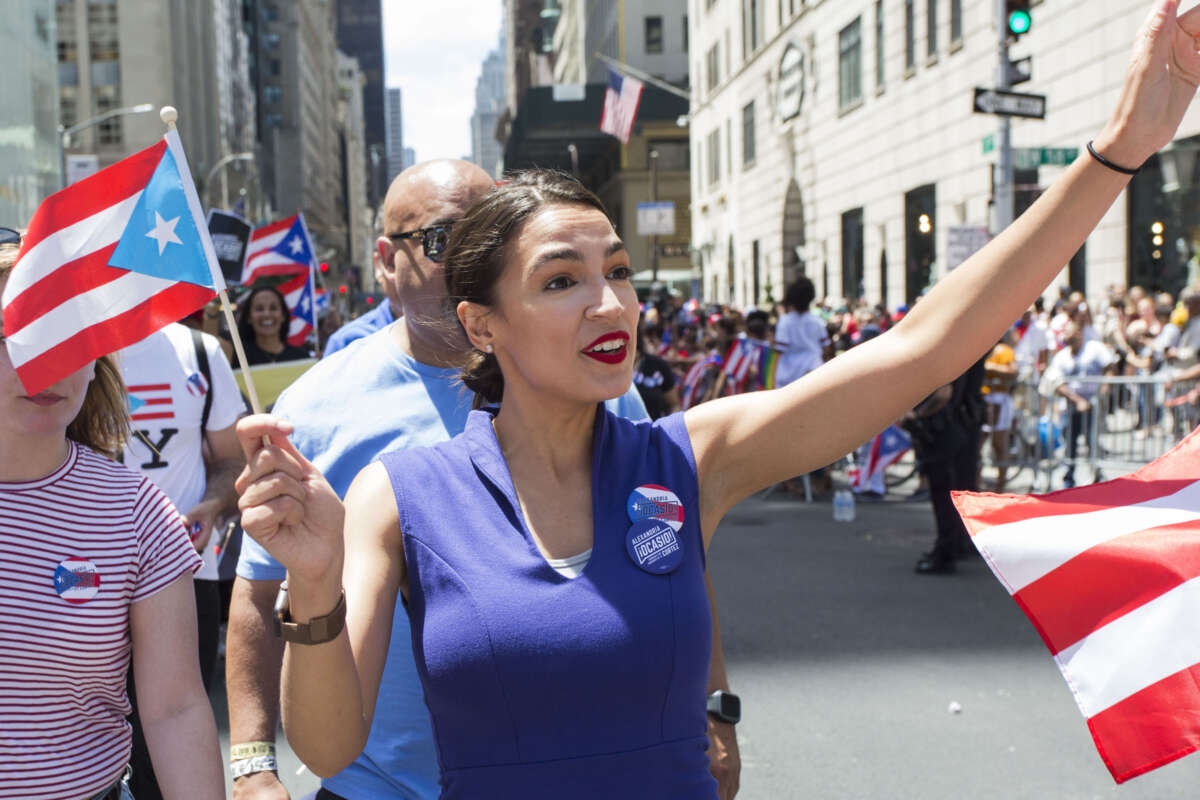Support justice-driven, accurate and transparent news — make a quick donation to Truthout today!
The House passed a long-awaited bill last week that would allow residents of Puerto Rico to vote on the fate of the U.S. territory, whether that be statehood, independence, or otherwise — a move that advocates say is crucial to beginning to right the harms of colonization that have long plagued the island.
The Puerto Rico Status Act passed on a bipartisan basis by a 233 to 191 vote on Thursday, with 16 Republicans joining all Democrats in voting “yes.” The bill would require a vote to be held on whether Puerto Ricans want the island to become a U.S. state, a sovereign government in free association with the U.S. or fully independent. Continuing the island’s current status as a colony is not an option.
The plebiscite would be binding; the bill requires the federal government to honor the results of the vote and ensure that it is carried out.
“While Puerto Rico is not the United State’s only colony, it is its oldest. Today, for the first time in our nation’s history, the U.S. will acknowledge its role as a colonizing force, and Puerto Rico’s status as an extended colony,” said Rep. Alexandria Ocasio-Cortez (D-New York) on the floor in support of the bill.
Ocasio-Cortez recognized the bill’s shortcomings, including its lack of reparations or provisions to address the island’s debt-restructuring plan, known as the Puerto Rico Oversight, Management, and Economic Stability Act (PROMESA). However, she said that she was “confident” that these issues could be addressed in due time with the passage of the bill, and that the bill — the result of months of negotiations between lawmakers and Puerto Rican advocates — was a breakthrough for the island.
“Decolonization is more than a vote. It doesn’t happen just with a vote. It is a social, political, cultural, economic and psychological process that extends far beyond the floor of this House,” continued Ocasio-Cortez, who introduced a version of the bill last year and who has been one of the bill’s top advocates. “That being said, the gains that are made here are a watershed moment.”
Though the bill passed on a bipartisan basis in the House, it likely does not have the support from Republicans to pass the 60-vote threshold in the Senate.
Puerto Rico has been a U.S. colony since 1898, when the U.S. seized the island after four centuries of Spanish rule. Colonization has had deep consequences for Puerto Rico, and the island is currently undergoing an economic crisis that has cost Puerto Ricans over $1 billion and resulted in increased privatization and the implementation of austerity measures on the island.
In past years, some lawmakers have advocated for statehood for the island, which would grant residents the right to participate in federal elections and access to federal programs like certain disability benefits.
The island has held plebiscites before that appeared to show that Puerto Ricans are in favor of statehood, but those votes have been criticized by advocates for independence, who have held protests in recent years over the lack of options other than statehood or continued colony status.
Independence advocates say that Puerto Ricans are constantly subject to the whims of U.S. politicians. Events like Hurricane Maria in 2017, which continues to have devastating impacts on the island and its residents, are a show of the island’s dire need for self-governance.
Holding Trump accountable for his illegal war on Iran
The devastating American and Israeli attacks have killed hundreds of Iranians, and the death toll continues to rise.
As independent media, what we do next matters a lot. It’s up to us to report the truth, demand accountability, and reckon with the consequences of U.S. militarism at this cataclysmic historical moment.
Trump may be an authoritarian, but he is not entirely invulnerable, nor are the elected officials who have given him pass after pass. We cannot let him believe for a second longer that he can get away with something this wildly illegal or recklessly dangerous without accountability.
We ask for your support as we carry out our media resistance to unchecked militarism. Please make a tax-deductible one-time or monthly donation to Truthout.
